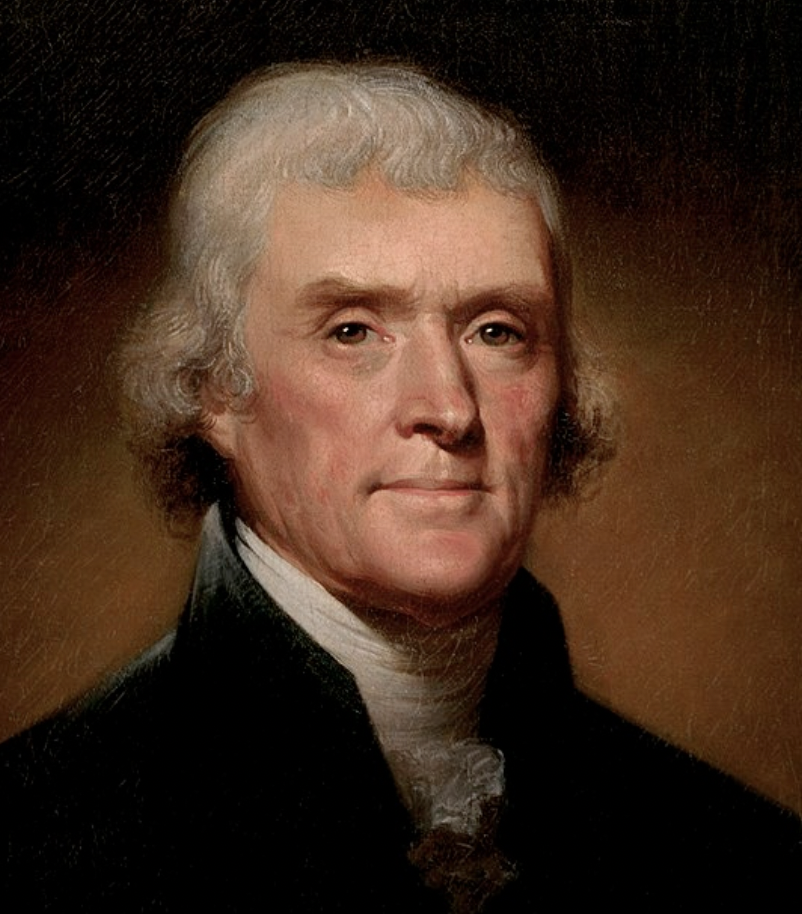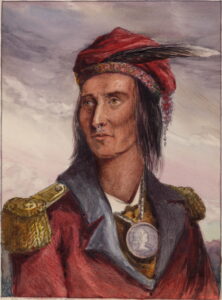Image Gateway
“Equal and exact justice to all men, of whatever state or persuasion, religious or political; peace, commerce, and honest friendship with all nations, entangling alliances with none; the support of the State governments in all their rights.” –Thomas Jefferson, First Inaugural, March 4, 1801
Louisiana Purchase (1803)

Additional Resources
- Summary & Context (Jefferson’s Monticello)
- Robert Lee, “The True Cost of the Louisiana Purchase,” Slate, March 1, 2017
Burr-Hamilton Duel (1804) and Ten Things You Don’t Know About Dueling
- Alexander Hamilton was involved in nearly a dozen “interviews” or duels and died in one in 1804 despite a lifelong opposition to the practice on sincere moral and religious grounds.
- The primary motivation for Hamilton’s decision to participate in the 1804 duel with Aaron Burr was a desire to maintain his “ability to be in the future useful” or in other words, to maintain his political viability.
- Duels in the early republic were mainly “demonstrations of manner” and not “marksmanship” or rituals of violence aimed at maiming or killing.
- Killing was actually rare in American duels of the period and sometimes brought shame to the gentleman killers. This helps explain why Aaron Burr’s reputation was permanently altered by his interview with Hamilton in 1804.
- Though dueling was a southern-dominated custom, it was not uncommon in the North, especially in Hamilton’s and Burr’s state of New York.
- Dueling was an important facet of early American political life and concern for “reputation” was “an axiom of political interaction in the early republic.” Honor was “more than a vague sense of self-worth” but rather established the “ability to prove oneself a deserving political leader.”
- To understand why Alexander Hamilton wrote his letter condemning fellow Federalist John Adams during the 1800 election, you must understand the elaborate rituals of the Code Duello.
- Much of the Code Duello, first written in 1777, involved establishing seemingly paradoxical practices that would protect all participants from legal jeopardy, offer a pathway toward conflict resolution short of violence, and ultimately provide a sense of equality as gentlemen.
- Among other colorful details, the honor code of the period involved a subtle understanding of the language of insults (“Rascal”, “Scoundrel”, “Puppy”) and the appropriate responses to them.
- There was a “grammar” to American political combat that would evolve away from the hierarchical nature of honor toward the more pugnacious and egalitarian style of partisanship during the nineteenth-century.
Primary Sources
War of 1812 (1811-1815)
-
Second Hundred Years’ War (1689-1815) –revisionist description of repeated conflicts between Britain and France during the long 18th-century
- Orders in Council –royal decrees issued by the Privy Council (King’s advisors) directing economic warfare against France (and indirectly against neutrals such as the United States) by limiting commercial trade
- Impressment –Royal Navy practice of boarding merchant ships seeking deserters; an estimated 10,000 Americans seamen endured impressment during Napoleonic conflicts
- Western expansion –Jeffersonians continued to pursue “an empire of liberty” with Louisiana Purchase (1803), pursuit of West Florida (1804), and Battle of Tippecanoe (1811)
- Napoleon abdicates and exiled to Elba
- August 1814 the British burn Washington’s public buildings
- Dolley Madison and Paul Jennings save artifacts from White House
- British invasion stalls outside of Baltimore at Ft. McHenry
- “Star Spangled Banner” by Francis Scott Key
- Negotiations for Treaty of Ghent start in August 1814; Orders-in-Council no longer in effect; Americans no longer objecting to impressment; questions revolve around Indian and territorial issues
- Congress of Vienna meeting simultaneously to settle European affairs
- In war’s final engagement, Andrew Jackson secures overwhelming victory at Battle of New Orleans in January 1815



